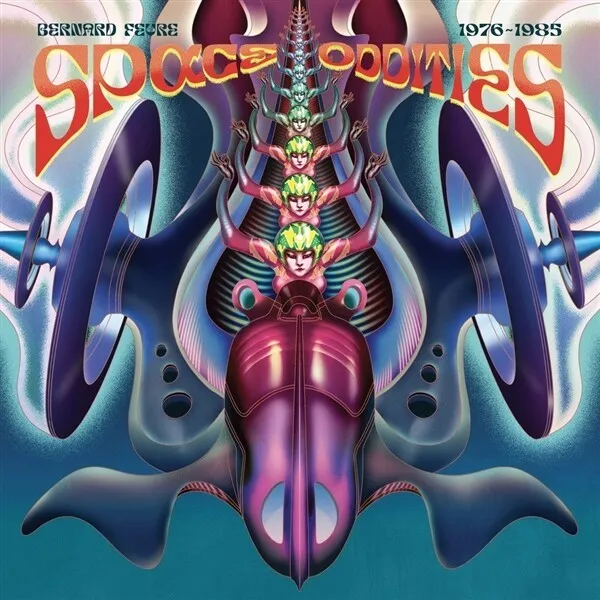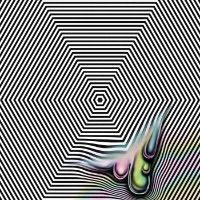- LP
- Recommended =
- New Release
Bernard Fevre
Space Oddities 1976-1985
Born Bad Records - Cat No: BB175LP
- updated:2025-01-17
名作ストック!”BLACK DEVIL”こと仏シンセサイザー音楽の先駆者BERNARD FEVRE、ディスコはもちろんポップからレゲエ、映画音楽に至る広域ジャンルで実験を行なってきたレジェンドの楽曲をまとめた大型コンピレーション「Space Oddities 1976-1985」が登場。編纂にALEXIS LE-TANとDJ JESSが参加。
Track List
-
A1. Bernard Fevre - Dali
-
A2. Bernard Fevre - Space Team
-
A3. Black Devil Disc Club - Follw me (Instrumental)
-
A4. Bernard Fevre - That Is To Be
-
A5. Bernard Fevre - Restless
-
A6. Old Gang Jah - Rasta
-
A7. Bernard Fevre - Foxy Spleen
-
A8. Bernard Fevre - Sunshine On March
-
B1. Milpatte - Cruzer
-
B2. Bernard Fevre - Odyssée
-
B3. Bernard Fevre - Central Way
-
B4. Suspence - Weekee Way
-
B5. Bernard Fevre - Earth Message
-
B6. Bernard Fevre - Cosmic Rays
-
B7. Black Devil Disco - No Regrets
-
B8. Bernard Fevre - Cimes Eternelles
-
B9. Milpatte - Livel
-
B10. Bernard Fevre - 2043
Among the figureheads of French disco, Bernard Fèvre, better known as Black Devil, probably had the shortest-lived carreer but was the most brilliant and unique mind of them all. Although his first album Disco Club, released in 1978, went unnoticed at first, it has since become a must-have, a collector’s item which has led a lot of listeners to further investigate into his extensive work. From rock music to music hall, sound illustration to disco, pop to reggae, through film music and advertising, Bernard Fèvre has experimented with so many genres that it has been hard not to lose track. One of his best albums even has such an unambivalent title as The Strange World of Bernard Fèvre. Please make your way to a cosmic dimension, verging on the unknown.
You were born in 1946 in Asnières, on the outskirts of Paris. What do you remember from your childhood? Where and how did you grow up, what’s your background story?
One of the first memories I have is my hometown wastelands, we used to play in the mud and have so much fun. Asnières had been spared by the war. My father worked in labor as an assembler in Gennevilliers for the Chausson factory, which belonged to Renault and built engines for buses and trucks. My dad’s parents lived in Burgundy and worked as winemakers and my grandparents on my mother's side made cider in Normandy. My mother was an ironer and a laundress. I grew up in a low-income household with a family who had accounting skills and didn't drink (laughs). I'm an only child.
How did you become interested in music in such a context?
Like other children I went to kindergarten. There was a piano in the playground and I played it with both hands without having learned before. “This isn’t normal, we have to tell his parents,” one of the teachers said. My mother found a piano teacher. I learned to play a bit, to read music, but after a while I got bored because what I was playing wasn't as good as what I would hear on the radio. I thought it wasn't really helpful and I quit.
You were born in 1946 in Asnières, on the outskirts of Paris. What do you remember from your childhood? Where and how did you grow up, what’s your background story?
One of the first memories I have is my hometown wastelands, we used to play in the mud and have so much fun. Asnières had been spared by the war. My father worked in labor as an assembler in Gennevilliers for the Chausson factory, which belonged to Renault and built engines for buses and trucks. My dad’s parents lived in Burgundy and worked as winemakers and my grandparents on my mother's side made cider in Normandy. My mother was an ironer and a laundress. I grew up in a low-income household with a family who had accounting skills and didn't drink (laughs). I'm an only child.
How did you become interested in music in such a context?
Like other children I went to kindergarten. There was a piano in the playground and I played it with both hands without having learned before. “This isn’t normal, we have to tell his parents,” one of the teachers said. My mother found a piano teacher. I learned to play a bit, to read music, but after a while I got bored because what I was playing wasn't as good as what I would hear on the radio. I thought it wasn't really helpful and I quit.




コレクターズアイテム化している1978年リリースの伝説的ディスコ作品BLACK DEVIL「Disco Club」で著名ながら、ディスコに留まらない幅広い音楽性とスタイルを探求し、その影響はテクノシーンにまで波及したレジェンドBERNARD FEVREの膨大な作品を精査し選び抜き網羅した大型コンピレーションプロジェクト!レゲエに傾倒した電子ダブジャムOLD GANG JAH「Rasta」や宇宙フィルムミュージック的「Cimes Eternelles」など。今やシンセサイザーミュージック古典となっている楽曲から、今回改めて注目が向けられる秘蔵音源まで。現代レフトフィールドディスコシーンのキーマンであるALEXIS LE-TANとDJ JESSからこそ、敬愛とフロア視点も入ったセレクトも素晴らしい。トラックリストからも是非。 (Akie)